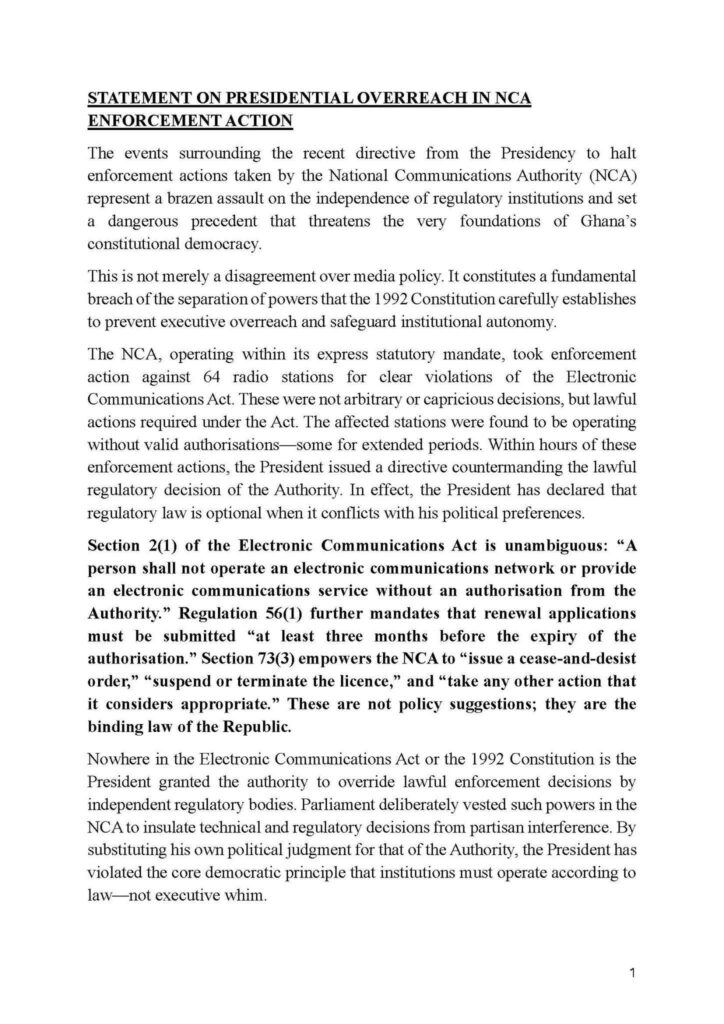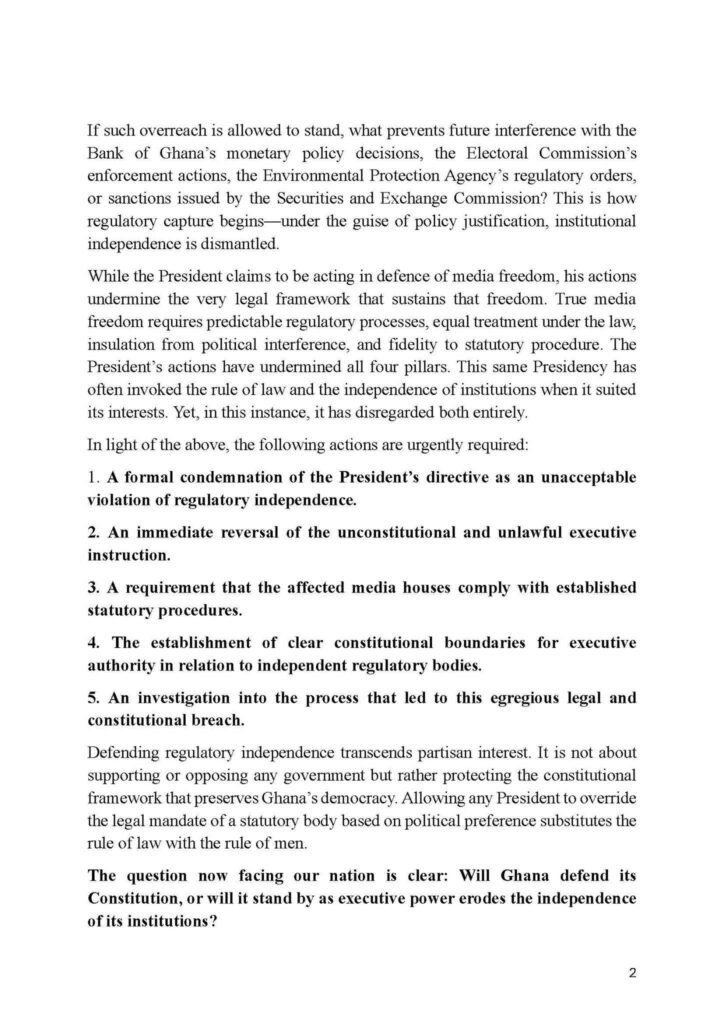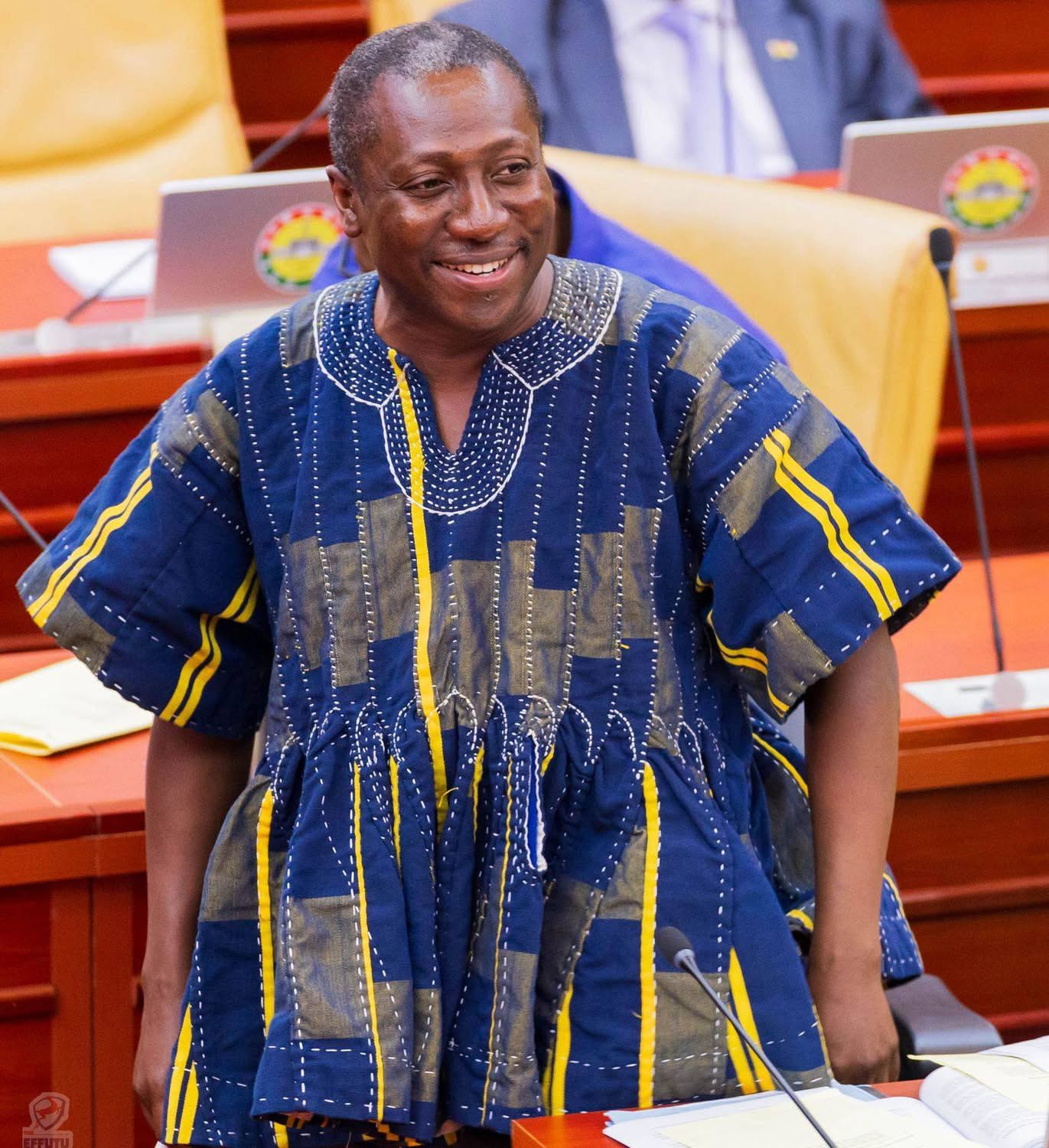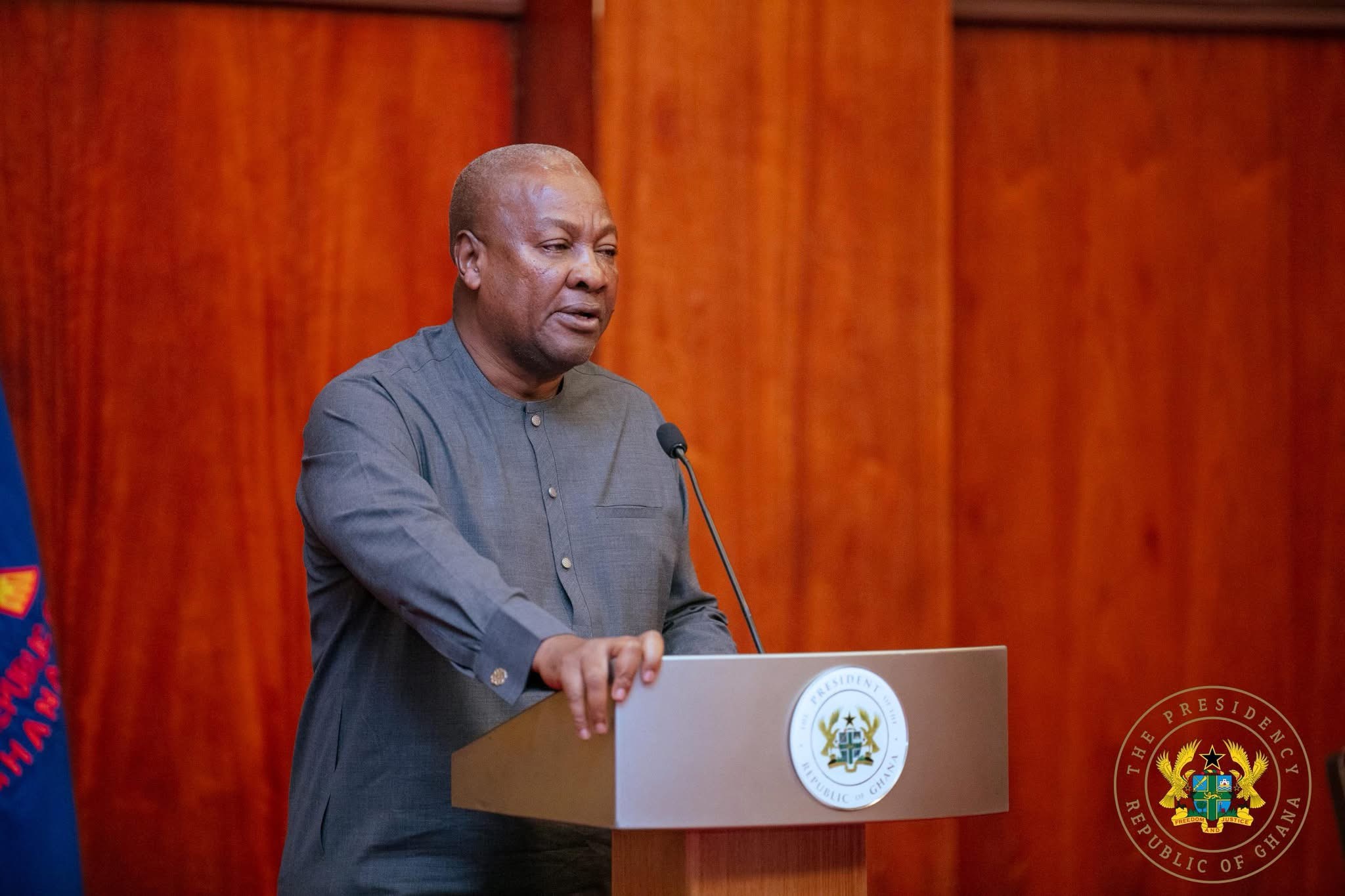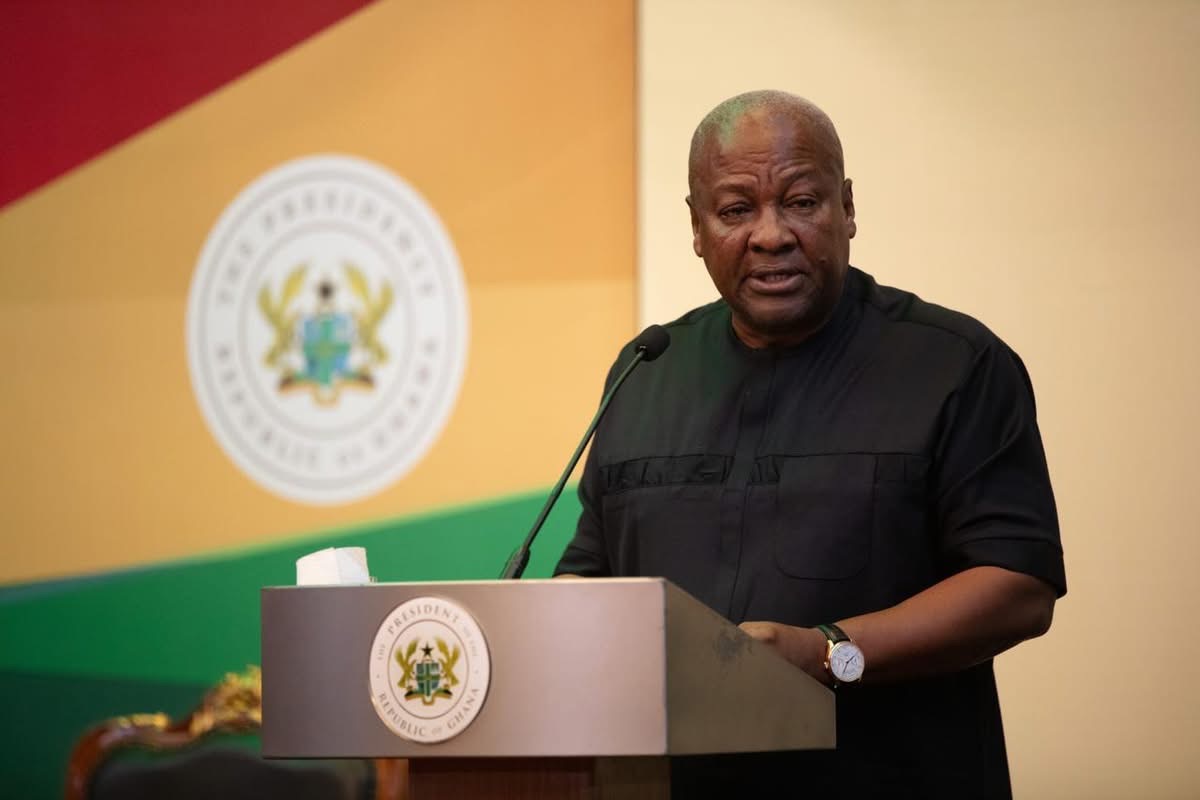Minority Leader Alexander Afenyo Markin sounded the alarm over what he describes as a grave constitutional violation following President Mahama’s directive to halt regulatory actions taken by the National Communications Authority (NCA) against some defaulting radio stations.
In a statement posted on his Facebook page, Afenyo Markin accused the President of interfering in the lawful mandate of an independent regulatory body. He called the move “a brazen assault on the independence of regulatory institutions” and warned that such actions could have far-reaching consequences for Ghana’s democracy.
The NCA had recently enforced sanctions against 64 radio stations found to be operating without valid authorisations. These enforcement actions, according to Afenyo Markin, were entirely within the NCA’s statutory mandate under the Electronic Communications Act. “These were not arbitrary or capricious decisions, but lawful actions required under the Act,” he emphasized, adding that some of the affected stations had operated illegally for extended periods.
However, shortly after the NCA initiated these lawful enforcement measures, the Presidency intervened, ordering the regulator to halt its actions. Afenyo Markin criticized the President’s directive as a dangerous abuse of power, stating, “In effect, the President has declared that regulatory law is optional when it conflicts with his political preferences.”
He explained that the Electronic Communications Act leaves no room for political interference, citing Section 2(1), which states: “A person shall not operate an electronic communications network or provide an electronic communications service without an authorisation from the Authority.” The Act also gives the NCA the authority to suspend, terminate, or take any necessary action against entities operating in violation of the law.
For Afenyo Markin, the issue at hand is not simply about the media, but about the broader principle of constitutional governance and the separation of powers. “By substituting his own political judgment for that of the Authority, the President has violated the core democratic principle that institutions must operate according to law— not executive whim,” he declared.
He further warned that this kind of interference could open the door for future overreach into other independent institutions such as the Bank of Ghana, Electoral Commission, Environmental Protection Agency, and Securities and Exchange Commission. “This is how regulatory capture begins under the guise of policy justification, institutional independence is dismantled,” he cautioned.
While the President has argued that his intervention was meant to protect media freedom, Afenyo Markin believes the opposite has occurred. “True media freedom requires predictable regulatory processes, equal treatment under the law, insulation from political interference, and fidelity to statutory procedure. The President’s actions have undermined all four pillars,” he said.
The Minority Leader called for an immediate reversal of the directive, a formal condemnation of the President’s actions, and the establishment of firm constitutional limits to prevent any future executive interference in the work of independent regulators. “Defending regulatory independence transcends partisan interest. It is not about supporting or opposing any government but rather protecting the constitutional framework that preserves Ghana’s democracy,” he stressed.
In closing, Afenyo Markin posed a serious question to the nation: “Will Ghana defend its Constitution, or will it stand by as executive power erodes the independence of its institutions?”
